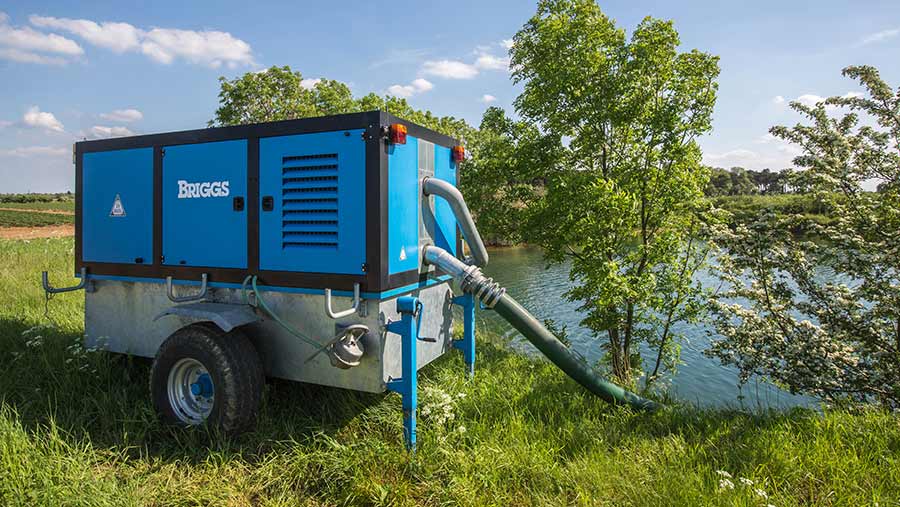Sepa warns of summer water abstraction restrictions
 © Tim Scrivener
© Tim Scrivener Below-average rainfall in May has led to increased water scarcity across Scotland, raising fears of a summer drought and restrictions on abstracting water.
Scotland received only 44% of the long-term average rainfall across the country in May and, with little rain forecast for the coming few weeks, the situation is expected to worsen quickly.
Twelve areas in the north-west and southern-central region have reached “alert” level, according to the latest water-scarcity report published by the Scottish Environment Protection Agency (Sepa).
See also: Analysis: What is being done to secure water resources for UK farmers?
An area of the Highlands around Loch Maree has recorded very low river flows and dry ground conditions, and it has increased from “alert” to “moderate scarcity” – the second-highest level of water scarcity.
Farm businesses extracting water are being urged to put their water-scarcity plans into action now to reduce pressure on the environment and preserve water resources.
Nathan Critchlow-Watton, head of water and planning at Sepa, said: “Abstractors must manage water wisely in the coming weeks and months, and should already have contingency plans in place in case restrictions are needed to avoid long-term damage to the environment and fish populations.
“All of us have a responsibility in managing our water environment, this summer and beyond. By using water efficiently, businesses can increase their resilience to the effects of prolonged dry conditions and save money.”
If the dry weather persists, Sepa said it could not rule out needing to impose restrictions on water abstraction licences over the summer.
Farmer reaction
David Colthart, a sheep and beef farmer based at Achnacone Farm, in Appin, Argyll, in the west Highlands, said his farm had dried up after April and May saw no more than two inches of rain.
“We receive our water from the hill supplies and the burns, and these are drying up at the moment,” he added. “That will be the biggest issue as some of the burns supply the sheds.”
Mr Colthart said he was more concerned about the prospect of wildfires breaking out on the hills, following a massive fire at Cannich, south of Inverness, last week, which damaged an RSPB nature reserve.
Aberdeenshire farmer Patrick Sleigh said: “Everything is late; we had a late spring. The crops are looking good, but we could do with a shower now.
“We don’t have the same yield potential as last year, as we had a difficult establishment period. I think potato yields will be down.”
